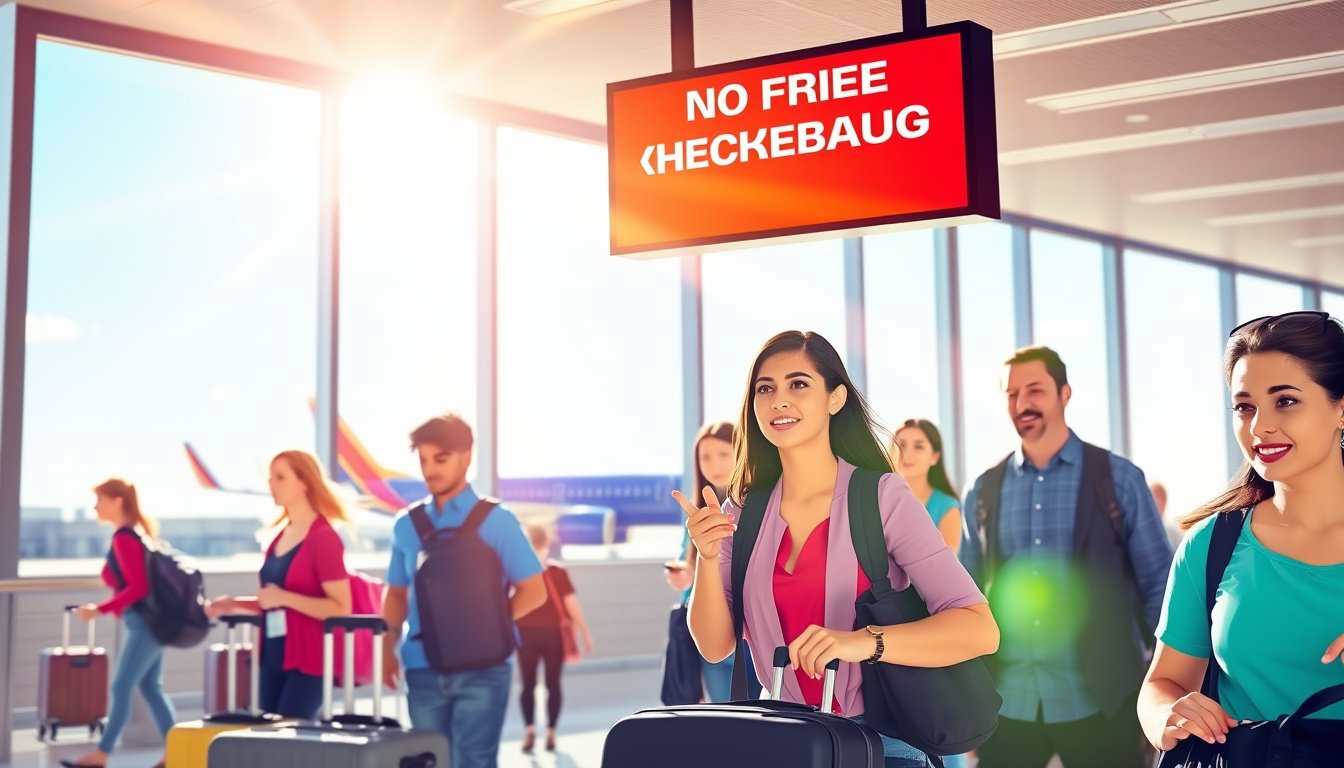In a significant shift for travelers, Southwest Airlines has announced that it will end its long-standing policy of allowing passengers to check two bags for free, a policy that has been a hallmark of the airline’s customer-friendly approach. Set to take effect on May 28, 2025, this change means that Southwest will join other major U.S. airlines—such as American, Delta, and United—who have imposed fees for checked luggage amid rising operational costs. With this policy shift, travelers are left wondering how they can best navigate the new landscape of baggage fees and what it means for their travel experience. In this article, we will explore the impact of these changes, provide essential tips for managing checked baggage costs, and review the current baggage fee landscape across U.S. airlines.

Key Takeaways
- Southwest Airlines will end its free checked baggage policy starting May 28, 2025, aligning with other major U.S. airlines.
- Frequent flyers and loyal customers may face dissatisfaction due to the new baggage fees and revised policies.
- Travelers are encouraged to plan ahead, consider airline credit cards, and pack light to manage potential baggage costs effectively.
Impact of Policy Changes on Travelers
As the travel industry evolves, recent policy changes at Southwest Airlines are sending ripples through the airline community. Known for its customer-friendly approach, Southwest has decided to end its two-free-checked-bag policy, effective May 28,
2025. This shift marks a significant change, as Southwest was the last major U.S. airline to offer free checked luggage. Following the trend set by other major airlines like American, Delta, and United, which have implemented similar fee structures due to rising operational costs, Southwest’s forthcoming policy will impose fees for both the first and second checked bags on most travelers. While some passengers, particularly loyal customers such as A-List Preferred members and those flying in business class, will continue to enjoy free checked luggage allowances, this alteration has sparked concern among the airline’s faithful patrons. Travel experts highlight that though some customers may still prioritize ticket prices and overall convenience, dissatisfaction might grow among frequent flyers who valued Southwest’s previous flexibility and transparency. Alongside the baggage fee changes, Southwest will also introduce new limitations on the expiration of flight vouchers, a basic economy fare class, and a dynamic pricing model for its Rapid Rewards flights. Although specific checked baggage fees have yet to be disclosed, it’s expected they will align with competitors currently charging between $35 and $40 for the first checked bag. To minimize expenditures, travelers are encouraged to prepay online, take advantage of airline credit cards that provide baggage waivers, and pack lighter to avoid additional costs. Understanding baggage fee structures is crucial, as policies differ significantly across airlines. In summary, as Southwest shifts its approach towards baggage fees, consumers are advised to adapt proactively by leveraging rewards programs and considering class upgrades to manage their travel expenses effectively.
Tips to Manage Checked Baggage Costs
To effectively manage the upcoming costs associated with checked baggage on Southwest Airlines, travelers should adopt several practical strategies. Firstly, prepaying for checked bags through the airline’s website can often lead to discounted rates compared to paying at the airport. Additionally, utilizing airline-specific credit cards can not only provide benefits such as free baggage allowances but also help accumulate points for future travel. Packing efficiently is another key tactic; travelers can benefit from the trend of light packing, where carrying only essentials in a carry-on can eliminate checked bag fees entirely. Frequent flyers should also stay informed about different airlines’ baggage policies, as they vary widely; knowing these details will aid in making more cost-effective travel choices. Finally, considering upgrades to business class or loyalty programs, which still offer complimentary checked bags, might provide substantial savings and enhance the overall flying experience.




